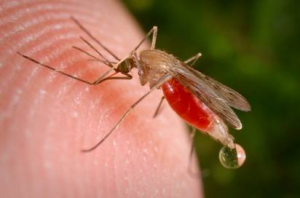Surge in Cutaneous Leishmaniasis reported in Northern Pakistan
Wednesday, May 15th, 2013 4:30:56 by Tahir Khan
The neglected disease cutaneous leishmaniasis is on the increase in Pakistan’s Federally Administered Tribal Areas (FATA), according to reports by FATA’s Directorate of Health. In response, the international medical organisation Médecins Sans Frontières/Doctors Without Borders (MSF) has donated supplies of medicines to treat the disease.
Cutaneous leishmaniasis is the common form of leishmaniasis, a parasitic disease transmitted by sand flies. It causes ulcer-like lesions and can lead to severe disfigurement. If left untreated, it can complicate by affecting internal organs. FATA is endemic to leishmaniasis
The recent surge in cases saw 1,335 patients with cutaneous leishmaniasis treated from January to March 2013, according to the FATA Directorate of Health, an increase of over 270 cases compared to the same period last year. MSF donated 1,200 vials of the drug Meglumine Antimoniate (Glucantime) in the last week of April. This was almost 30% of the quantity that had been requested across FATA for an entire year, based on last year’s patient numbers.
Since the first reported outbreak in FATA in 2002, the Health Directorate launched a national response programme in 2003 to tackle the disease. The World Health Organization’s Disease Early Warning System (DEWS) programme has been supporting the treatment of the disease in FATA since 2010.
The sudden increase in cases of cutaneous leishmaniasis reverses a trend which had seen cases fall over recent years. During 2012, MSF treated 298 patients for the disease at the Sadda Tehsil Headquarter hospital in Kurram Agency – a 50 percent drop on the previous year. “Timely treatment of the disease was a big factor in the significant drop in cases in the area,” said MSF medical coordinator Dr Isaac Chikwanha.
Using bed nets reduces the risk of being bitten by sand flies and infected with the disease. “We encourage patients suffering from sores or ulcers to seek immediate medical care at the Agency hospitals,” says Dr Rehman Afridi, FATA’s leishmaniasis programme manager.
In 2012, MSF treated over 500 cases of cutaneous leishmaniasis in Sadda, Kurram Agency and in Quetta, Balochistan. Currently, MSF treats an average of 50 patients weekly in Quetta. In 2008 MSF launched programmes to provide the simple but lengthy treatment required for the disease.
Tags: Disease Early Warning System, Doctors Without Borders, FATA, LeishmaniasisShort URL: https://www.newspakistan.pk/?p=40246


















There are a lot of technology and medication nowadays that would really cure cutaneous diseases. A book called Handbook of Skin Ultrasound is the first practical handbook of skin ultrasound which can be very helpful.